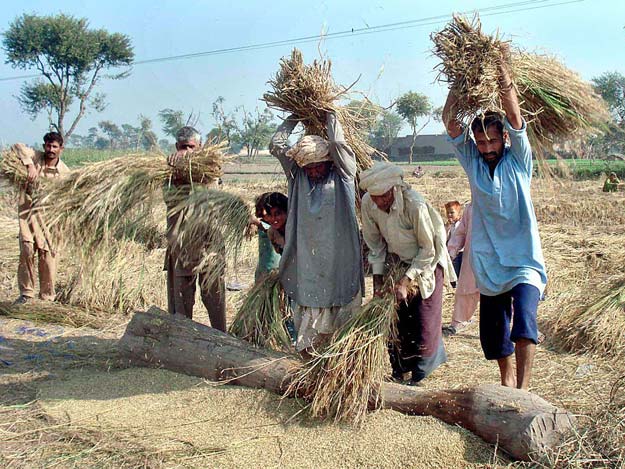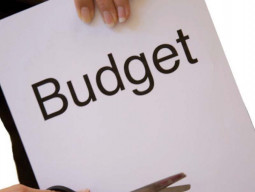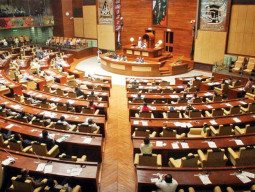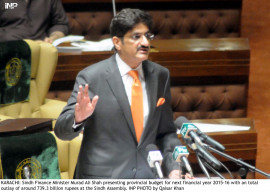
KARACHI:
Holding up the tradition of criticising the federal government for its unpredictable fiscal transfers to the provincial government, Sindh Finance Minister Syed Murad Ali Shah announced on Saturday the establishment of a Tax Reform Unit (TRU) within the finance department to enhance provincial tax collection.
Notwithstanding the fact that the same announcement was made in the preceding budget speech as well, Shah tried his best to paint a rosy picture of the provincial taxation system. “The performance of the Sindh Revenue Board (SRB) has been exemplary. Its rise to a major tax-collecting agency in such a brief period is unparalleled,” he said.
However, budget estimates show the expected provincial tax receipts amounting to Rs124.6 billion constitute only 17.1% of the total receipts of the province projected for 2015-16. In other words, the Sindh government finds itself largely dependent on federal transfers that constitute as much as 68% of the total provincial receipts that are projected to be Rs726.5 billion in the next fiscal year.
As if the low share of the tax receipts in the overall provincial receipts was not embarrassing enough, a quick look at the breakdown of Sindh’s tax revenues reveals a sharp tilt towards indirect taxation.
Indirect taxes, which are regressive by nature, form as much as 91.9% of the total projected provincial tax receipts for 2015-16. Direct taxes, which include the tax on agriculture income, amount to just Rs9.9 billion, or 7.9%, of the total estimated provincial tax receipts. In the absence of resource mobilisation at the provincial level, especially by means of direct taxes, it is least surprising that the Sindh government repetitively complains about the ‘unpredictable’ federal transfers every year.
The amount collected as the tax on agriculture income, which was imposed in the province back in 2002, is shockingly low. The budget estimate for the tax on agriculture income in 2015-16 is only Rs559.3 million.

Indirect taxes, as a result, form 91.9% of total projected receipts.
It means the tax target for agriculture income for the next fiscal year comes around 0.4% of the total projected provincial tax receipts.
The amount of Rs559.3 million is considerably lower than the non-tax receipts of Rs572.9 million that the government expects to receive in 2015-16 through fees drawn by government’s educational institutes, including secondary and intermediate schools, technical colleges and universities.
Furthermore, the estimates of expenditures reveal that the government has promised agriculture subsidies, which exclude administration expenses, amounting to a staggering Rs9.1 billion in 2015-16, up 127.5% from the revised estimate for 2014-15.
With heavy subsidies and near-absence of taxation on the income on agriculture, no wonder the provincial government is going to rely on indirect taxation by means of sales tax on services (Rs61 billion), provincial excise tax (Rs4.8 billion), stamps duty (Rs9.5 billion) and motor vehicle taxes (Rs5.7 billion) in 2015-16.
In addition, Shah also announced the imposition of sales tax on several other services, such as travel agencies (10%), credit rating agencies (14%), underwriters (14%), indenters (14%), auctioneers (14%), dredging and desilting (10%), copyright or intellectual property right services (10%), packers and movers services (14%), valuation services (14%) and renting of commercial properties (6%).
Published in The Express Tribune, June 14th, 2015.
Like Business on Facebook, follow @TribuneBiz on Twitter to stay informed and join in the conversation.





























































COMMENTS (1)
Comments are moderated and generally will be posted if they are on-topic and not abusive.
For more information, please see our Comments FAQ